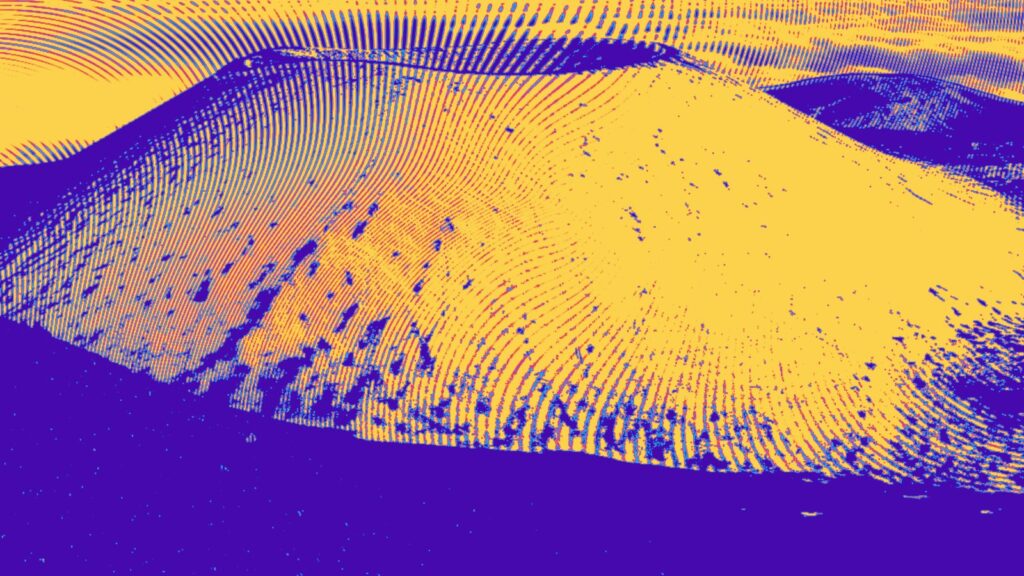As humanity enters a time of social and cultural change, of altered perceptions and challenges to our worldview, we are almost certainly going to be coerced into altered modes of consciousness. In other words, in order to readapt and to survive the breakdowns of the old mind/old energy our collective worldview will need to shift to an ecological and more intuitive mode. This is likely to also involve a shift towards a more direct mode of perception (a form of gnosis).
Whilst these two modes of the cognitive and the intuitive may operate simultaneously, and have been known as the objective and subjective modes of knowledge, our modern societies have largely prioritized the objective interpretation and dismissed the subjective as the imaginative realm. This ‘imaginative’ realm of subjective experience is most active when we are children, although quickly diminishes as our social institutions and peer conditioning intervene to install a consensus social reality. Yet the direct-intuitive mode of perception is an evolutionary trait that is still with us, and which may be beginning to manifest in the new generations of intuitive children.
It is possible that the non-linear connections over space and time (e.g., global communications) between our species will be one of the aspects that will become more dominant in the years ahead. The Internet gives us a physical representation of these new spatial and temporal relations. The direct-intuitive mode will surely be a more effective means of comprehension and understanding as it bypasses the sensory organs that usually filter information. Also, the direct-intuitive mode operates outside of linguistic barriers, and allows access to a collective, shared participatory consciousness.
The ‘participatory consciousness’ view of reality reflects an intuitive mode of perception that relates with the new energies of connection, communication, collaboration, and compassion. This understanding is now being validated by the latest findings in the quantum sciences, notably quantum mechanics and biophysics. Our ‘everyday consciousness’ of the local view of the universe is largely unprepared for the realms of non-ordinary reality. In our present era, and in Western civilization especially, the direct-intuitive mode of perception (subjective experience) has not been encouraged, or even recognized, and so has atrophied and become the province of the esoteric sciences. It may be because the ‘rational objective’ view of reality allows for an increased sense of individualism, favored by the ego, and as such is the sphere of power, money, competition and greed. The direct-intuitive mode of reality, however, embraces cooperation, connection, correspondence and compassion. And it seems that we are already witnessing the emergence of this new feature of human consciousness.
The notion of the direct-intuitive perception of reality could be a step toward the next stage in human evolution – the evolutionary development of what may be termed quantum consciousness that is the basis for the collective mind of the human species. Various mystics and consciousness researchers have alluded to this by a variety of names; they range from cosmic consciousness, super-consciousness, transpersonal consciousness, integral consciousness, and more. All these descriptions share a common theme; namely, the rise of intuition, empathy, greater connectivity to the world and to people, and a sense of ‘knowing’ about what each given situation demands.
The emergence of a form of direct-intuitive consciousness would likely instil within each person a sense of the greater cosmic whole; the realization that humanity exists and evolves within a universe of intelligence and meaning – a living universe. This would serve to impart within humanity a more profound, and acknowledged, spiritual impulse. This could then lead to increased intuitive faculties and extrasensory phenomena not only becoming an implicate part of our lives but also opening up access to greater creativity and inventive capacities for participating and designing our way ahead in the world. The rise of these attributes within a small percentage of people, initially, could eventually lead to a critical mass that would tip human consciousness into a new perceptual paradigm and worldview.
Forms and intimations of these new consciousness patterns are already emerging in the world, but as yet they have not become a part of mainstream research. Such evolutionary ‘mutational’ agents include visionaries, mystics, artists, psychics, intuitives, spiritual teachers, and what have been termed the new ‘Indigo Children’. As Dr Richard Bucke stated in his classic work on the subject, Cosmic Consciousness (1901), the early signs of this new evolutionary development have been appearing within humankind for some time.
This suggests that there have been attempts to help prepare the ‘mental soil’ for a new consciousness to slowly seed and grow. On the whole, social/cultural/material forces are slow to react to the need for an evolving paradigm of human consciousness. Yet this is nothing new, as throughout recorded history many individuals who have felt an awareness of the need to seed an evolutionary impulse into social life have been caught up in revolutionary events or been involved in social-cultural upheavals.
Perhaps it can be speculated here that in order for continued cultural and species growth there are particular periods of human history wherein humanity becomes ready, or in need of, the activation of particular faculties or evolutionary traits. It may be that during this transition period humanity will adapt, or be forced to develop, new creative and inspired aspects of consciousness. However, as in all paradigm shifts, old energies inevitably must give way to the new, and it may only be a matter of time before new generations move into evolving consciousness and its physical expressions. It is thus critical that an understanding of spiritual matters begins to permeate our everyday lives as a counterbalance to our social materialism.
We are in need of unity, not uniformity
We are not looking for ‘awesome’ consciousness – such as Nietzsche’s super-man. Rather, it is a different consciousness, and thus a different type of human, that is likely to emerge. That is, not ‘more of the same’ – only more of those who are manifesting the new consciousness. As in the words of Satprem: ‘It is no longer the time to be better, it is the time to be otherwise.’
The human mind is like a large pot that can contain the same water for all – a unified sharing. The road to unity – with diversity – begins with the need for harmony. With the energy of harmony we can make the water still and calm. Through harmony we can celebrate our differences with tolerance, respect, patience; without judgment, gossip, or ill-feeling towards others. With harmony we can begin to come together; to work together and collaborate – to build trust and vision. First we need to smooth out the energies of disturbance that exist in the world. This begins with harmony at home – within oneself, family, partners, friends, acquaintances and contacts. From here the energy that is harmonized can reach out, seep out, into the world and resonate with others.
In these years ahead it will be to our benefit if we try to develop a consciousness that is both open to spiritual impulses whilst simultaneously aware and attentive to the needs of our communities and cultures. It is essential that we revitalize our collective sense of well-being and connectedness – our togetherness and empathy – as part of our shared human journey. It is possible that emerging glimpses of a shared participatory consciousness will allow humanity access to an unimaginable creative cosmos of information and inspiration. This would then open up new vistas of creative intelligence that could be the forerunners to the next stage along our human evolutionary journey.















